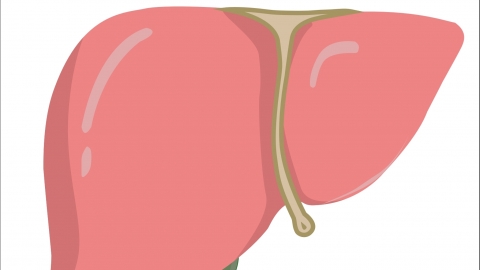What causes gallbladder polyps?
Under normal circumstances, gallbladder polyps may be caused by irregular eating habits, aging, chronic cholecystitis, gallstones, bile stasis, and other factors. If discomfort symptoms occur, it is recommended to seek timely medical evaluation and treatment at a reputable hospital. Specific analysis is as follows:

1. Irregular Diet
Long-term skipping of breakfast or binge eating can cause bile to remain in the gallbladder for extended periods, stimulating hyperplasia of the gallbladder mucosa and leading to polyp formation. It is important to maintain regular meals, always eat breakfast, avoid excessive intake of high-fat and high-cholesterol foods, consume more vegetables and fruits, and maintain a balanced diet.
2. Aging
With increasing age, the elasticity of the gallbladder wall decreases and the mucosal repair capacity declines, making mucosal hyperplasia more likely and increasing the risk of polyp development. Regular abdominal ultrasound examinations are recommended to monitor gallbladder health, along with moderate exercise to improve physical fitness and avoidance of excessive fatigue.
3. Chronic Cholecystitis
Prolonged inflammation of the gallbladder causes repeated injury and repair of the mucosa, which easily leads to hyperplastic polyp formation, often accompanied by dull pain in the right upper abdomen. Under medical guidance, medications such as ursodeoxycholic acid capsules, anti-inflammatory and bile-promoting tablets, or cefuroxime axetil tablets may be prescribed. Spicy and greasy foods should be avoided to reduce gallbladder irritation.
4. Gallstones
Long-term friction from gallstones against the gallbladder mucosa can lead to mucosal damage and hyperplasia, resulting in polyp formation, possibly accompanied by biliary colic. Under medical supervision, medications such as Ganshitong capsules, chenodeoxycholic acid tablets, or levofloxacin tablets may be used. For larger stones or frequent symptoms, laparoscopic cholecystectomy may be required.
5. Bile Stasis
Narrowing of the bile ducts or impaired bile drainage leads to bile stasis, and abnormal bile components may irritate the gallbladder mucosa, triggering polyp formation. Severe cases may affect liver function. Under medical guidance, drugs such as anethole trithione tablets, polyene phosphatidylcholine capsules, or ursodeoxycholic acid tablets may be prescribed. In cases of severe bile duct narrowing, bile ductoplasty may be necessary.
In daily life, it is important to maintain regular eating habits and avoid prolonged fasting; control body weight and reduce consumption of high-fat foods; undergo regular gallbladder ultrasound screenings for early detection and intervention; and actively treat gallbladder-related conditions to prevent disease progression.







